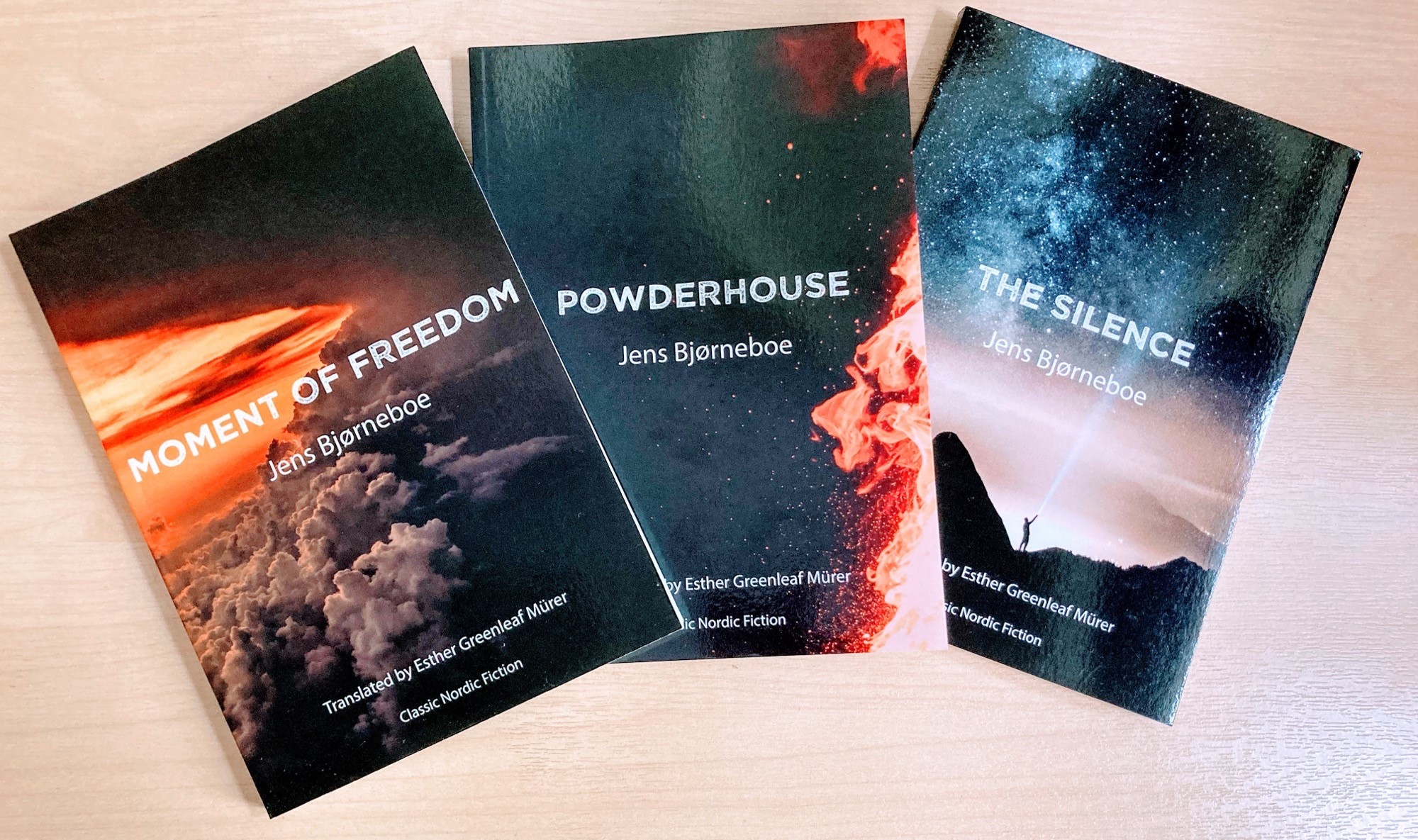
‘… it struck me again that we inhabit an earth which is filled with a beauty beyond all understanding – and that we’ve turned this paradise into a slaughterhouse and a criminal asylum – into an all-embracing La Morgue, stinking of benzol and chloroform – instead of making water on finance ministers (as the hospital cat does) and singing, drinking wine, praising the solar system, frolicking, mating with each other, writing plays, and praying to the stars.’
This quotation from Powderhouse encapsulates the central concerns of the trilogy by Norwegian writer Jens Bjørneboe (1920–76) in the 1960s and 70s: Moment of Freedom (Frihetens øyeblikk, 1966); Powderhouse (Kruttårnet, 1969); and The Silence (Stillheten, 1973). Throughout his writing career Bjørneboe had been preoccupied with investigating injustice and cruelty, from the inhumanity of the World War II concentration camps to the brutalizing prison system and the regimented education system, stamping those who are different as ‘sub-normal’. In this trilogy he attempts through different narrators to address the fundamental issue of the problem of evil: why, when we have been presented with this beautiful earth, have we set out to destroy it and one another?
These three books – he calls them ‘manuscripts’ or ‘protocols’ rather than novels – range over a large amount of historical material, from witch-burning to public executions, from Verdun and Dachau to Cortez’ destruction of the Aztec empire and Pisarro’s destruction of the Inca empire. The investigations are conducted by a narrator who is variously a court official arranging trials, the caretaker of a lunatic asylum and an unidentified observer. Dark as his journey is, it is relieved by moments of intense awareness of the coolness of the night air, the taste of fine wine or the warmth of a lover’s body; and the trilogy culminates in the realisation that even if our capacity for evil is overwhelming, so is our capacity for good. He has researched the case for the prosecution, but there is also a case for the defence, ‘of man the incomprehensible – endlessly evil, endlessly good – all-renewing, all-destroying’.
It was largely thanks to the Herculean efforts of Bjørneboe’s American translator, Esther Greenleaf Mürer, that Norvik Press was able to publish this trilogy in 1999-2000. The rather stunning covers of the first edition of the books were taken from works by one of Norway’s most important twentieth-century painters, Frans Widerberg.
In 2017 we reissued the three books in a new format and with a different cover design by Essi Viitanen:
One year after The Silence, Bjørneboe published his final novel, The Sharks (Haiene, 1974). This is a more traditional novel than the trilogy, and full of action and suspense; it is a thrilling story of mutiny and shipwreck, stranding on a desert island and survival against the odds. But at the same time it resounds with the urgency of all of Bjørneboe’s work, here addressing the problem of how a small community might construct a fair and equal society. It is Bjørneboe’s vision of an anarchist Utopia, of power shared by all and of commitment to another human being which provides a reason for hope of a better future.
This novel too was translated by Esther Greenleaf Mürer and first published by Norvik Press in 1992. Our first edition sold out, and we republished the book in 2016.
It is now just over a hundred years since Jens Bjørneboe was born, forty-five years since he took his own life, and memories of his hugely controversial life and writings have faded somewhat. But the questions he asked, uncomfortable as they were, are questions we need to go on asking. Indeed, it might be said that in the present context, his concerns about the future of Planet Earth are more pressing than ever.



